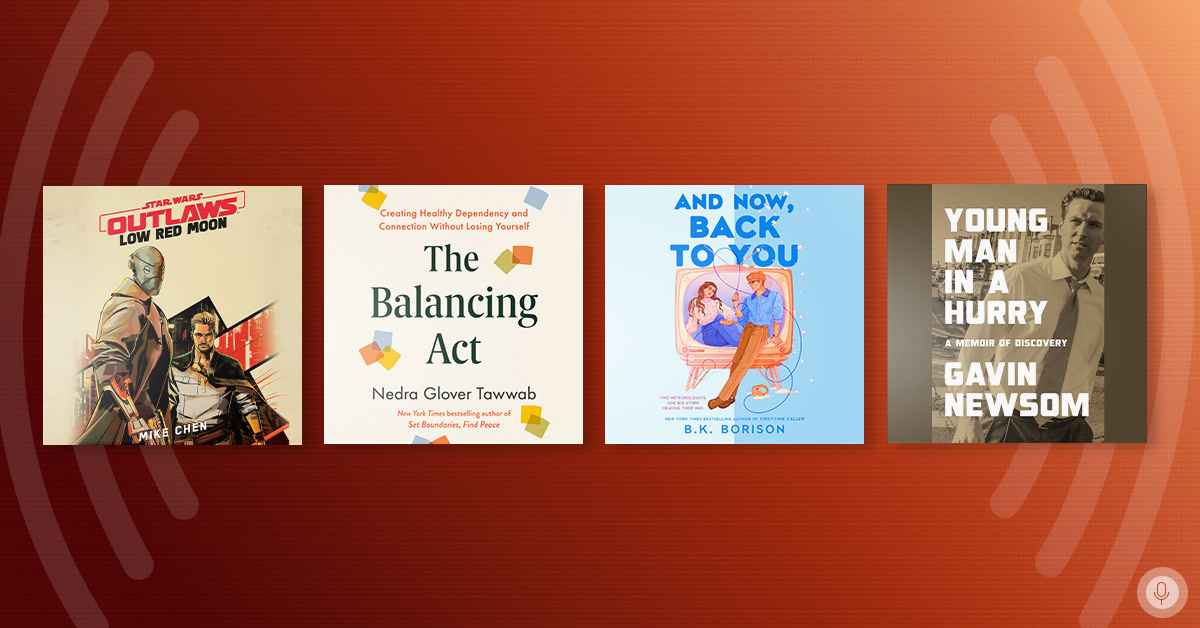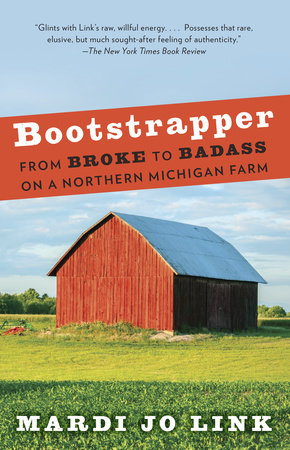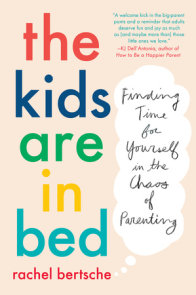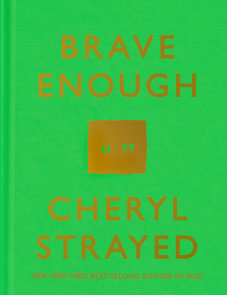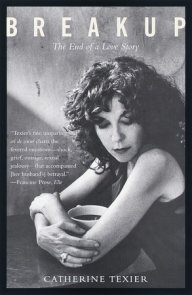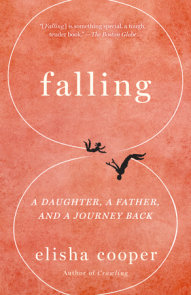READERS GUIDE
The introduction, author biography, discussion questions, and suggested reading that follow are designed to enhance your group’s discussion of Bootstrapper, a memoir by Mardi Jo Link.Introduction
Bootstrapper is the smart, hilarious, and endlessly entertaining account of one of the most difficult years in Mardi Jo Link’s life, as she awaits her divorce and struggles—among rapidly mounting obstacles—to raise her three boys and preserve the dream that she has for them all. But Link’s memoir is more than just one woman’s tale; it is a story to which any reader can relate: a testament to the journeys of self-discovery that we must all undertake as we confront seemingly impossible challenges and navigate life’s most unexpected twists and turns.It is 2005, and Mardi Jo Link’s marriage of almost two decades is coming to a close. On the eve of her divorce from the man her friends refer to as “Mr. Wonderful,” she is faced with increasing debt and all of the problems that come with it. Her family is struggling to stay fed, stay warm, and stay positive. As soon as she finds a solution to one problem, another arises. As if that isn’t enough, Link faces the emotional tolls of separation, cycling through periods of grief, loneliness, guilt, and anger as she tries to come to terms with the path her life has taken. Day by day, she and her family must find ways to survive, as she fights desperately to maintain their way of life and save the farm that they call home. They are forced to use their ingenuity, resilience, and resolve to get by and to rebuild a dream that seems to be crashing down around them.
Unfailingly, unflinchingly, and often irreverently honest, Bootstrapper is not just the story of one family’s struggles on a Michigan farm, but a meditation on self-discovery, our failures and our foibles, and the ways in which we finally—with determination, humor, strength, and resolution—triumph and overcome. Weaving history and heritage with the here and now, Link’s story is a contemporary tale of the virtue that has always been an integral part of the fabric of American living—self-reliance. Finally, Bootstrapper is a story of love and family and the things we do to preserve what is most valuable, to keep whole the most precious parts of our selves and our lives.
Mardi Jo Link’s relentless humor, wit, and (most of all) sincerity propel us forward throughout, enlighten us, keep us moving along with her to the very end—rooting for her and the things she holds most dear, eager to reach with her the success we are certain she deserves.
Questions and Topics for Discussion
1. Evaluate the epigraphs at the start of each chapter. What relationship do they have to the major themes of the book? What do they also reveal about Link’s personality, character, education, and interests?
2. In the first chapter, Link takes her children to the Cherry Festival. She lets her son try his hand at a shooting game even though she realizes it is fixed. Why is it important that she let him do this anyway, knowing he will probably fail, and why is it a significant detail that he ends up winning? Shortly afterward, a thief snatches tickets out of her son’s hand. What realization does Link come to at the conclusion of this event and their time at the Cherry Festival? How does Link develop this idea as a motif throughout the book? Where does this concept reappear within her story?
3. Why is Link so affected by the death of her horse Major? What does his death represent for her? Does her stance on this or her interpretation of this event seem to change or evolve at all by the end of the book?
4. At the time of Major’s death, Link recalls a single line of poetry, which, she says “saves me, just, from that death blow” (40). In addition to this example and the epigraphs at the start of each chapter, literature and poetry is reference in many other places in the story. She recalls the poetry of Emily Dickinson, for example, at the time of her divorce hearing in chapter 9. With this in mind, what roles do literature and education play overall in the personal journeys and growth of Link and her sons?
5. After the death of Major, Link must sell her horse Pepper. The horse ultimately escapes from her owners and is found trapped in mud up to its chest. What meaning or symbolism does Link find in this event? What does it reveal about her own feelings and situation?
6. Evaluate the structure of the book and consider the chapter titles Link has chosen. What period of time is represented in each chapter and in the book as a whole? Why is it significant that the chapters and their titles reference the cycles of the moon, the passage of time, and the changing of the seasons? What do these items say about change as an inherent part of our human experience? What can we draw from her son’s observation in chapter 4 that Einstein believes the concept of time to be a fiction?
7. Evaluate the genre of the book and its tone. How does the tone of the book influence our reaction as readers? Is the book honest? Convincing? Exaggerated or embellished? Consider the voice of the book—is it sentimental, humorous, serious, or meditative? How does Link employ humor as a literary device? How is her memoir like or unlike other memoirs you have read?
8. Link often relates her story to a greater history. In the first chapter she compares the plight of her family to those who endured the American frontier, “even the Dust Bowl” (24). She creates a sense of multiple generations not only with her own family through her children and her parents but through the sense of history via the long ownership of the farm and history of the land over so many years. What are some of the common struggles featured in Link’s memoir? Why do you believe the documentation of these kinds of experiences in nonfiction, fiction, and poetry is important?
9. How do faith and spirituality surface as key aspects of the book? Link seems to be on a journey to discover her faith and come to an understanding of what she does and does not believe. Raised as a Lutheran, she brings her sons from church to church. She prays, consults the Book of Job, and employs Buddhist practices, mantras, and meditation. Where does she end up in this spiritual journey by the book’s end? In what does she ultimately find faith, a sense of spirituality, and consolation?
10. Is there a traditional villain (or villains) in this book? If so, who are they? What characteristics do they share? Why, for instance, is Link so unfriendly to the potential buyer in chapter 12? Besides people, what other items or concepts represented in the book become symbols of villainy?
11. Evaluate point of view in the book. Though the story is told by Link, how do her sons and other characters provide some variety in point of view? What is the effect of this? Why is it important that Link’s voice does not overrun the book? In chapter 5, for example, as she and her sons gather firewood on the side of the road, she imagines the scene as a bystander would witness it. Why is it important or relevant that she possesses this ability to see things from another perspective?
12. Link says that if there was a single mantra in her childhood, it was “accountability.” What does she mean by this? Does Link ever ask for help or assistance? Why or why not?
13. What dialogue does the book offer about common experience? Does Link, for instance, compare her plight to others, or does she believe it to be her own personal tragedy? How does she link to the thoughts and experiences of others over time throughout the book? Even to the animals found in nature? How would her experiences perhaps have been different if she were facing her problems alone and not living in a pack, as she might call it, with three sons? Alternatively, what is her reaction to her realization of the distinction between her life and that of her parents?
14. There are many symbols throughout the book, but does Link find or create meaning in what she sees around her? What does she mean in chapter 9 when she says that “you’d better just go on and grab some meaning wherever you can find it” (161)? What examples of irony are present in the book? Do these examples comment on fate or coincidence?
15. How does Link change from the start of the story to its conclusion? How do we find her in the first chapter? Why doesn’t she choose to present herself—especially at the start as readers as just meeting her—in a better light? Was this presentation of herself a good or faulty tactic? Explain.
16. Though Link’s book is a work of nonfiction, she is not unlike many characters in world literature. How does Link’s character compare to other protagonists or heroines in literature? What do they share in common? What sets her apart? Consider her role as wife, mother, farmer, woman, head of household, etc.
17. At the conclusion of the book, what is it that Link sees as her greatest victory? Do you agree?
